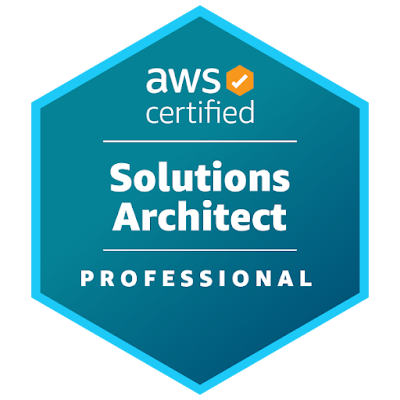Introduction
I recently cleared the AWS Solutions Architect – Professional (SAP-C02) exam. It’s an intense experience that truly tests you to the core. This was the toughest AWS certification I’ve taken so far. Clearing it on the first attempt is quite challenging. In this post, I’ll be sharing my exam experience and preparation journey, which I hope will help others too.
Preparation
When I began preparing for the exam, it was mostly about reading content, experimenting on AWS, and browsing the internet to learn from the experiences of others who had cleared it. Initially, I was completely directionless—I had no clear plan. As the exam date got closer, the pressure started to build. Preparing while managing a full-time job made it even more challenging.
I realized that the exam isn’t just about knowing services—it's about applying the right solution for a given scenario, considering all the constraints. I juggled between multiple resources (listed below) and focused on understanding the context and purpose of each service as much as possible.
- Ultimate AWS Certified Solutions Architect Professional 2025 : Good but not enough.
- AWS Certified Solutions Architect Professional SAP-C02 : Bit more detailed. better.
- AWS Documentation : For services which I need more understanding.
- ChatGPT : To clarify doubts and ask clarifying questions.
I focused more on understanding the services rather than just memorizing facts. That doesn't mean you can skip memorization entirely—some questions do require specific knowledge, like API Gateway and Lambda timeouts, maximum allowed S3 object size, CIDR block details, and similar technical limits.
I also tried a couple of mock exams on Udemy for practice, which helped me reflect on my understanding and gave useful feedback on my preparation. It's important to mention—don’t rely blindly on the mock test answers. Always question the answers, understand the reasoning behind them, and focus more on learning than just the scores.
During preparation I focused on following things for all the services which I was studying,
- When to use primarily?
- When not to use and alternatives?
- Limitations and Restrictions
- Scalability, Availability, Fault Tolerance
Exam
The exam is mentally exhausting and can completely drain you with its scenario-based questions and tricky answer choices. Some options may seem correct at first glance and give you a false sense of confidence, but once you deep dive into the question, you realize they're wrong. In fact, the most obvious-looking answers are often the incorrect ones!
I would recommend following,
- Time Management is extemely important (I almost failed in this!)
- Use Whiteboard wisely during the exam to find most important clues from the question.
- Don't rush to answer, take time and re-validate your answer.
- Flag question for review and move ahead if you don't know. Don't invest time there!
If you have a solid understanding of services in Compute, Storage, Security, and Networking, you should be able to answer more than 50% of the questions, based on my experience. However, that alone isn't enough—you need to score at least 750 to pass the exam.
Summary
If you are planning to appear for this exam, you should be confident enough with the understanding of different AWS services along with their use cases and limitations. This exam is bit difficult to clear if you don't have hand-on experience of AWS in my opinion. However, with proper planning and consistency in study can surely make you clear this exam. All the best!
* The sticky note idea is copied from this reddit thread.





